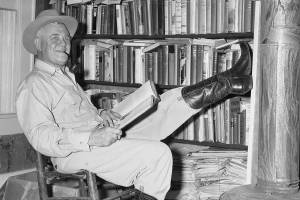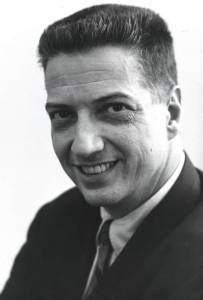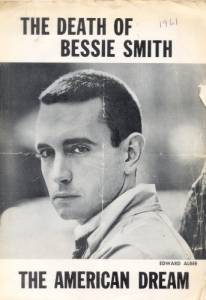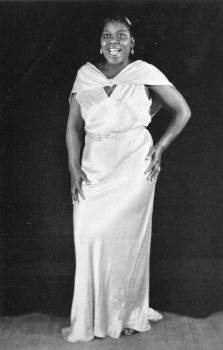J. Frank Dobie was a member of the faculty at the University of Texas off and on from 1914 until his dismissal in 1947. As you may know, I attended said institution in the early and mid-1970s. Dobie, author of numerous books, was a widely recognized voice of Texas and southwestern culture. I have my doubts  about this man, who died seven years before I got to UT. Perhaps he was being sly or witty when he uttered the phrase “never let the truth get in the way of a good story,” but I don’t buy it. I confess, in my writings I sometimes find it necessary to condense or summarize to facilitate the reader’s understanding or to preclude his/her frustration. The basic facts cannot be fudged, though. I am here to contradict old J. Frank by asserting that the truth comes first.
about this man, who died seven years before I got to UT. Perhaps he was being sly or witty when he uttered the phrase “never let the truth get in the way of a good story,” but I don’t buy it. I confess, in my writings I sometimes find it necessary to condense or summarize to facilitate the reader’s understanding or to preclude his/her frustration. The basic facts cannot be fudged, though. I am here to contradict old J. Frank by asserting that the truth comes first.
He was generally liberal and progressive on social matters, but I doubt he knew or cared about blues music. That is our topic—namely, Bessie Smith, one of the greatest blues practitioners from the early days. She died on September 26, 1937, but even now the circumstances are shrouded in rumor and suspicion. This can be traced to one man, John Hammond, and his decision to lie for a good cause.
Death on Highway 61
Smith and her paramour/manager Richard Morgan were driving north on Highway 61 around 2 in the morning. They were in Coahoma County, Mississippi, and she was headed for a singing engagement in Memphis. Morgan failed to see a truck parked on the side of the road with its lights off. There was a  collision, Smith’s right arm was nearly severed, and she had serious internal injuries. Who first came upon the scene but a doctor! Yes, Dr. Hugh Smith and his friend Henry Broughton were going on a fishing trip. Both of these men, it must be noted, were European-American. The Mississippi Delta in the 1930s seethed with racism and white-on-black violence, so Dr. Smith and Broughton might have just chosen to ignore these unfortunate African-American victims. They did not, stopping and doing their best to give Smith emergency first aid; Morgan was just shaken up. Because she weighed more than 200 pounds, they had trouble loading her into the back seat of Dr. Smith’s car. As they were doing so, a car bearing two drunken European-Americans crashed into Morgan’s car which then hit Dr. Smith’s. One can imagine the mayhem.
collision, Smith’s right arm was nearly severed, and she had serious internal injuries. Who first came upon the scene but a doctor! Yes, Dr. Hugh Smith and his friend Henry Broughton were going on a fishing trip. Both of these men, it must be noted, were European-American. The Mississippi Delta in the 1930s seethed with racism and white-on-black violence, so Dr. Smith and Broughton might have just chosen to ignore these unfortunate African-American victims. They did not, stopping and doing their best to give Smith emergency first aid; Morgan was just shaken up. Because she weighed more than 200 pounds, they had trouble loading her into the back seat of Dr. Smith’s car. As they were doing so, a car bearing two drunken European-Americans crashed into Morgan’s car which then hit Dr. Smith’s. One can imagine the mayhem.
It took nearly 30 minutes for an ambulance to arrive. In fact, two arrived—one for the injured European-American woman in the second car, and one for Smith. Jim Crow laws and mores had to be followed, even in a critical situation. Different ambulances roared off to different hospitals in nearby Clarksdale. G.T. Thomas Hospital surely did not have the same equipment, and well-trained physicians and nurses as its counterpart, but Smith had to go there. She would not be given special treatment just because she was a famous blues singer. Dr. Smith, interviewed by police and later by reporters, was clear that she had been taken to G.T. Thomas. Following the amputation of her arm, she died there around 11 a.m., nine hours after the accident.
A lie travels fast…
Things get murky at this point. Morgan may have fed disinformation to Hammond, well-known as a music critic, talent scout and record producer. In fact, he had supervised some of Bessie Smith’s last recording sessions. Hammond wrote about her death in the October 1937 issue of Downbeat magazine. He claimed that Smith had been taken to the European-American hospital in Clarksdale, was turned away and then died—a callous show of racism. Hammond, wealthy, powerful and a champion of civil rights for non-European-Americans, did just what J. Frank Dobie advocated. That is, he went with the good story (look at what those bigoted Southern honks have done now) rather than the literal truth. Hammond lied, and he knew it. Dr. Hugh Smith and Henry Broughton had acquitted themselves quite well, a point soon lost amid Hammond’s falsehoods. Let me remind you of something Winston Churchill once said: “A lie can travel halfway around the world before the truth has a chance to get its pants on.”
Although the very next issue of Downbeat contained a retraction, the story of Smith being refused service at Clarksdale’s European-American hospital stuck. A one-act play by Edward Albee in 1959  entitled The Death of Bessie Smith was based on Hammond’s fib—with the exception that he placed the segregated hospital in Memphis. Not until the 1972 publication of Chris Albertson’s in-depth biography of Smith were the facts laid out. Hammond, bulldog tenacious, would not concede that he had misrepresented the truth. He died in 1987, still lying about what happened 50 years earlier.
entitled The Death of Bessie Smith was based on Hammond’s fib—with the exception that he placed the segregated hospital in Memphis. Not until the 1972 publication of Chris Albertson’s in-depth biography of Smith were the facts laid out. Hammond, bulldog tenacious, would not concede that he had misrepresented the truth. He died in 1987, still lying about what happened 50 years earlier.
Tell the truth
While I understand the temptation to cast Bessie Smith as a martyr to 20th century Southern racism, this is a false narrative. There is fiction, and there is nonfiction, and the two should not be conflated. The former is whatever springs from the mind of a novelist, whereas the latter is not so malleable. The car crash—or crashes—on Highway 61 that morning were quite real, as was Smith’s suffering and death. I take issue with Dobie, Hammond and Albee who found it convenient to play fast and loose with the facts.


4 Comments
Mr. Pennington’s essay is superbly crafted and historically pristine. As a young man, I read Albee’s play and thought it was written to conveniently fit the old “All White Southerners are Bad” narrative that metastasized through the course of mid and late 20th century literature.
Facts are stubborn things and in many cases bringing light to the darkness of lies is one of life’s most difficult tasks.
Well done, Sir Richard. You have brought sunshine to what had been a sorry, clouded episode in our history.
“Facts are stubborn things…” How true, Dex!
Very good article! Nice job!
Kabrina, thanks for reading it and your comment.
Add Comment